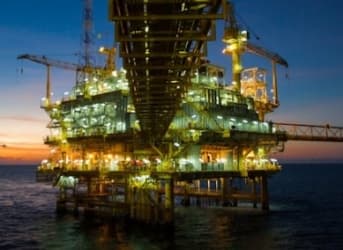The collapse of oil prices is opening up a new diplomatic opportunity for the United States in the western hemisphere.
The U.S. has a spotty and turbulent history intervening in Latin America and the Caribbean, but outside of drug interdiction, the western hemisphere has largely taken a backseat when it comes to foreign policy during the Obama administration.
But the oil bust is offering another entree for the U.S. in the region. That is because there is a power vacuum with the erosion of the Venezuelan economy. Well-endowed Venezuela has the largest reserves of oil in the world, and has used its oil to create a political bloc of ideologically aligned nations, mostly in the Caribbean and Central America. Through its program dubbed Petrocaribe, Venezuela sells oil to friendly nations at reduced prices or by offering near-free financing. Countries can pay back the Venezuelan government at interest rates below 1 percent over periods as long as 25 years. Related: How Much Longer Can OPEC Hold Out?
Petrocaribe did allow Venezuela to expand its influence in the region. Venezuela built alliances with the anti-U.S. governments of Cuba and Nicaragua, but also increased its influence in smaller Caribbean nations that needed energy assistance, such as Jamaica, Grenada, Haiti, and others. Many of these island nations have little, if any, indigenous sources of energy and imported fossil fuels sap their governments of much needed cash.
However, now with oil prices half of what they were a year ago, oil revenues for Venezuela are drying up. That had the government of President Nicolas Maduro facing near-certain default in the coming years. In order to stay afloat, Maduro has slashed shipments of low-cost oil to Petrocaribe nations by about half since 2012. Easing aid to its friends will help Venezuela avoid default by saving it billions of dollars per year.
That will come at the expense of the beneficiaries of Petrocaribe. Venezuela is trying to get several countries including the Dominican Republic and Jamaica to pay back debt owed from the program, no doubt causing economic hardship for them. Related: The Future Of Offshore Drilling Could Be Unmanned
Stuck in a bind, many Caribbean nations are facing uncertain economic times without the support of the chavista government. With Venezuela stepping back, the United States senses an opportunity.
A newfound push in the Caribbean is based on the notion that support from PetroCaribe is falling apart. “If Petrocaribe were to fall due to events in Venezuela, we could end up with a serious humanitarian crisis in our region,” U.S. Secretary of State John Kerry said in early March.
In January, Vice President Joe Biden headed up a Caribbean Energy Security Summit. The event in Washington DC was attended by Caribbean leaders, and the objective was to find sustainable sources of energy for the region. Details remain a bit vague, but the U.S., through USAID, will support the rollout of renewable energy and energy efficiency. Clean energy is the headline objective, but the U.S. is also advocating for greater use of natural gas to replace diesel imports. The U.S. would stand to benefit by finding more customers for its natural gas exports, with new LNG export terminals now under construction. Related: EIA Changes Tack On Latest Oil Crisis
U.S. President Barack Obama pressed the case further on a visit to Jamaica on April 8.
The diplomatic offensive is certainly aimed at providing energy alternatives to struggling island nations. But it is also an attempt to pry the Caribbean away from Venezuela and back towards the United States. Not only has the U.S. referred to the humanitarian crisis brewing because of a weakening Venezuela, but the Obama administration also declared Venezuela a “threat to national security” on March 9. The U.S. placed sanctions on top Venezuelan officials, a bungled move that only provided credibility to Maduro’s claim that the U.S. is out to get him.
The collapse of oil prices has aroused the attention of the U.S. government in the region after years of neglect. A détente with Cuba, an energy security initiative in the Caribbean, and sanctions on Venezuela can all be seen as an attempt to bring the hemisphere back under the umbrella of Uncle Sam.
ADVERTISEMENT
By James Stafford Of Oilprice.com
More Top Reads From Oilprice.com:
- The Top 10 Largest Oil And Gas Fields In The United States
- Why The Oil Price Collapse Is U.S. Shale’s Fault
- Bad Jobs Report Could Be Good For Oil Industry


















